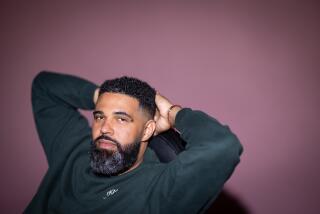Leroy Walker, 63; Lawyer Fought for Gay Rights
- Share via
Leroy “Lee” S. Walker, an activist and lawyer who led important efforts during the late 1970s and 1980s to protect the rights of gays and lesbians in the workplace, died April 5 of an apparent heart attack at his West Hollywood apartment. He was 63.
Walker was the driving force behind then-Gov. Jerry Brown’s 1979 executive order barring discrimination against gay state employees. The lawyer’s efforts helped pave the way in 1984 for an amendment to the state’s hate crimes law to include gays and lesbians under its protections.
He also was the lead attorney in the first California court case to affirm that employers could not discriminate against workers with AIDS. The 1987 case, filed on behalf of a Santa Barbara man with AIDS whose employer refused to allow him to return to work even though he was declared medically fit, was hailed as precedent-setting by national gay rights advocates.
“Lee was part of a growing movement of legal and political gay activists at a pivotal point in history when a few people really did make a difference,” Thomas F. Coleman, an attorney who worked closely with Walker in the 1980s to heighten awareness of sexual orientation discrimination, said this week.
Walker frequently challenged targets whose legal resources far exceeded those of his small Wilshire Boulevard law firm.
In one such case, he successfully represented three gay men who alleged that Disneyland had violated their civil rights when a security guard at the Anaheim amusement park told them that touch dancing was reserved for heterosexuals. The men dropped their lawsuit in 1989 after Disneyland officials pledged not to discriminate against same-sex couples.
A Washington, D.C., native, Walker graduated from the University of Pennsylvania in 1962 and the New York University School of Law in 1966. He moved to California in 1975 to become dean of student affairs at the San Fernando Valley College of Law.
He began to work as a consultant for the California Department of Fair Employment and Housing in 1979, when no state laws explicitly protected the rights of gays and lesbians. Walker successfully pressed Brown to issue the executive order that banned discrimination against state workers on the basis of sexual orientation.
He then lobbied the State Personnel Board to create the Sexual Orientation Project to focus attention on bias against homosexual employees. As the project’s first manager, he launched training programs to promote fair employment practices in various state agencies.
His efforts also led Brown in 1981 to establish the Commission on Personal Privacy, which brought together diverse constituencies, including women and senior citizens, to recommend steps the state should take to safeguard their rights.
One of the chief outcomes of the commission’s study was the adoption in 1984 of an amendment that included violence against the elderly, the disabled and homosexuals in the state law prohibiting hate crimes. It became the first California law to explicitly protect lesbians and gay men from discrimination.
Walker entered private practice in 1983 as a specialist in employment law. By the early 1990s his firm was believed to be the largest all-gay law firm in Los Angeles, with five openly gay lawyers, according to attorney Bill Rouse, who was hired by Walker in 1991.
Soon after starting his private practice, Walker became the attorney for John E. Chadbourne, the Santa Barbara man who was denied permission to return to work by Raytheon Co. of Goleta because of fears that he would infect co-workers with AIDS.
Chadbourne died of AIDS-related cancer in 1985, two years before the California Fair Employment and Housing Commission ruled that AIDS patients were protected by state laws that guard the physically handicapped against job discrimination. Chadbourne’s estate ultimately was awarded $6,000 in back pay and interest in a victory that gay rights activists said would help counter the myth that AIDS could be spread by casual contact in the workplace.
Walker also took on cases involving sex discrimination within gay businesses and organizations. He once represented an employee of the Advocate, the nation’s leading gay newsmagazine, in a case alleging same-sex sexual harassment.
Walker was a founding member of the California Employment Lawyers Assn. and the Los Angeles-area Legal Eagles, a forum for employment rights lawyers. He also organized the Gay and Lesbian State Employees Assn.
In 1993 he was the recipient of the Stephen Kelber Courageous Advocate award from the Gay Rights Project of the American Civil Liberties Union of Southern California.
He is survived by his mother, Sylvia Walker; a sister, Minette Hillman; and a niece, Elizabeth Hillman.
Memorial donations may be sent to the Lambda Legal Defense and Education Fund, 3325 Wilshire Blvd., Suite 1300, Los Angeles, CA 90010.
More to Read
Sign up for Essential California
The most important California stories and recommendations in your inbox every morning.
You may occasionally receive promotional content from the Los Angeles Times.













